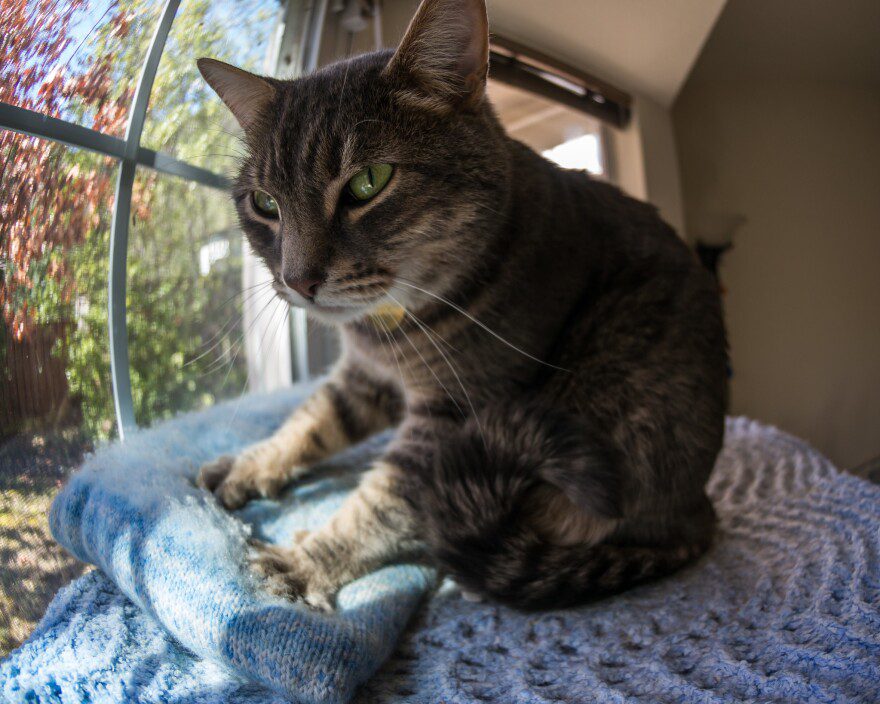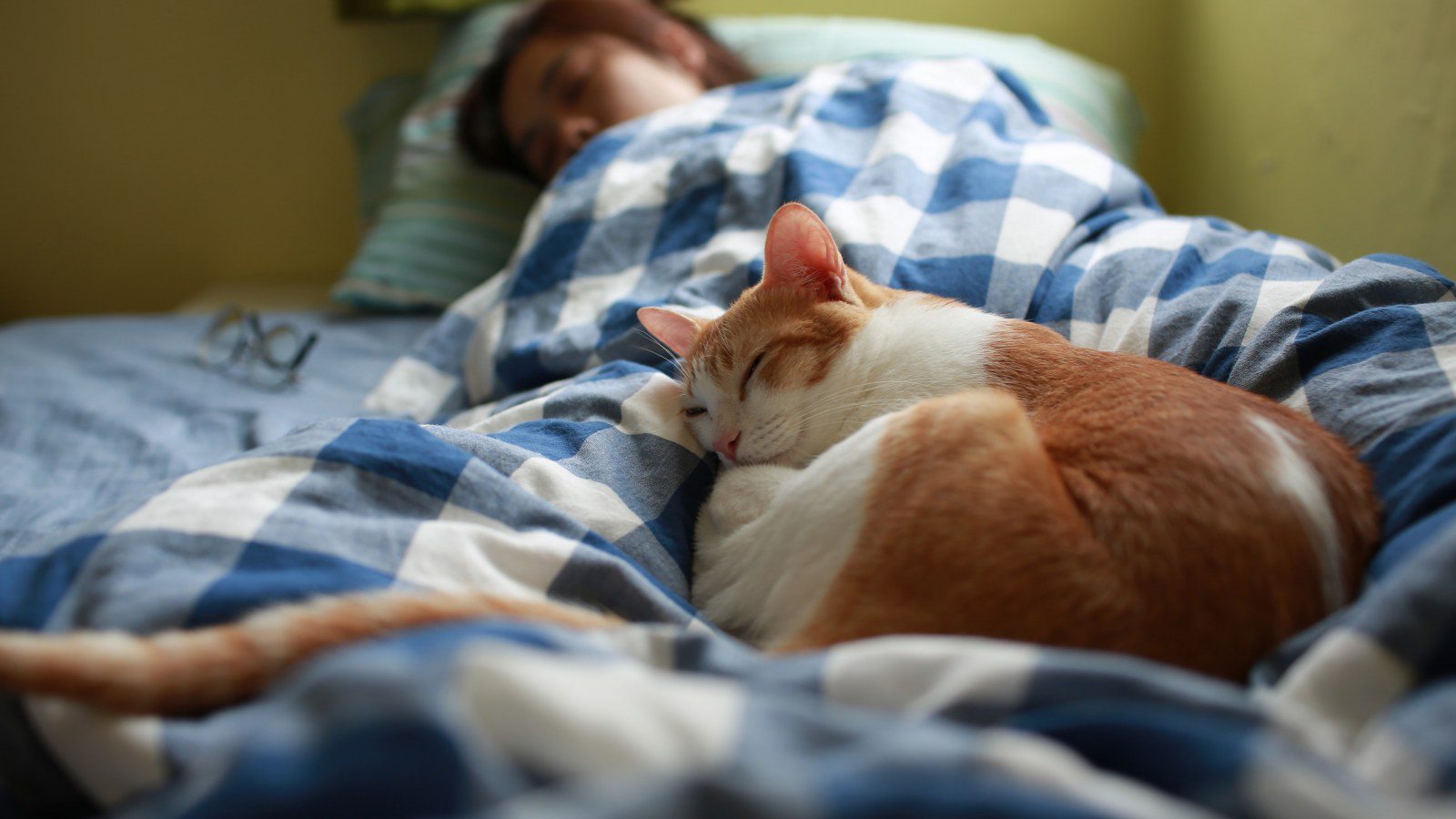Do you ever find yourself lying in bed, trying to drift off to sleep, when suddenly your furry friend decides it's the perfect time for a midnight serenade? If you've ever wondered why your cat becomes a vocal virtuoso during the wee hours of the night, then you're in for a treat. Exploring the fascinating world of "Midnight Meows: Why Your Cat Gets Vocal at Night" will not only shed light on this puzzling behavior but also provide you with valuable insights that can help you and your feline companion achieve a restful night's sleep. Understanding why your cat becomes chatty after dark is essential in maintaining a harmonious household and ensuring both you and your pet are well-rested. So, grab a cup of cocoa, settle into your favorite reading spot, and let's uncover the secrets behind those mysterious midnight meows.
Key Takeaways:
- Cats may become vocal at night due to their natural hunting instincts.
- Some cats meow at night as a way to seek attention or companionship.
- Stress or anxiety can also cause cats to be more vocal during nighttime hours.
- Providing mental and physical stimulation throughout the day can help reduce nighttime meowing.
- If excessive meowing at night persists, it is advisable to consult with a veterinarian to rule out any underlying health issues.
Understanding Why Cats Become Noisier at Nighttime
How Cats' Natural Instincts Influence Their Behavior
Cats are crepuscular animals, which means they are most active during dawn and dusk. This is when their ancestors, who were wild hunters, would go out to hunt for food. Even though domestic cats have been living with humans for thousands of years, they still retain this natural instinct. When night falls and the world becomes quieter, cats may feel more inclined to explore their surroundings and engage in activities like hunting or playing. This can lead to increased vocalizations as they communicate with other cats or try to get their owner's attention.
The Role of Environmental Factors in Cat Vocalizations
Environmental factors can also contribute to a cat's increased vocalization at night. For example, if a cat sees or hears something outside that piques its curiosity or triggers its prey drive, it may start meowing more frequently. Additionally, changes in the household routine or the presence of unfamiliar sounds or smells can make a cat feel unsettled and more prone to vocalizing.
Unveiling the Reasons Behind Cats' Meowing at Night
Hunger and Thirst as Common Triggers for Nocturnal Meowing
One of the main reasons why cats meow at night is because they are hungry or thirsty. If a cat's feeding schedule doesn't align with its natural instincts or if there are any disruptions in its regular meal times, it may become vocal during the night to express its need for food or water.
Attention-Seeking Behavior from Cats
Cats are known for being independent creatures, but they also crave attention from their owners. Some cats may meow at night as a way of getting their owner's attention and affection. They may want to play, be petted, or simply have some company. If a cat feels lonely or neglected during the night, it may resort to meowing in order to seek attention.
Helping Cat Owners Understand and Address their Cat's Nocturnal Vocalizations
Establishing a Consistent Routine for Cats
Creating a consistent routine for your cat can help reduce its nighttime vocalizations. This includes feeding your cat at the same times each day and providing interactive play sessions before bedtime to tire them out. By establishing a predictable routine, you can satisfy their natural instincts and minimize any potential disruptions that may lead to excessive meowing.
Providing Enrichment and Stimulation for Cats
Cats need mental and physical stimulation throughout the day to prevent boredom. Providing toys, scratching posts, and interactive games can keep them engaged and entertained. Engaging your cat in playtime during the evening hours can help tire them out before bedtime, making them less likely to engage in excessive vocalizations during the night.
Tips and Techniques to Calm a Noisy Cat During the Night
Creating a Calm Sleeping Environment for Your Cat
Ensure that your cat has a comfortable sleeping area away from any potential disturbances like loud noises or bright lights. Providing a cozy bed or blanket in a quiet corner of your home can help create a peaceful environment where your cat feels safe and secure.
Using Positive Reinforcement Techniques
Rewarding your cat for calm behavior during the night can be an effective way to encourage silence. When your cat remains quiet during the night, provide treats or praise as positive reinforcement. Over time, they will associate being quiet with receiving rewards, which can help reduce their nocturnal vocalizations.
Tips and Techniques to Calm a Noisy Cat During the Night
Understanding the Root Causes of Nocturnal Meowing
Noisy cats can be quite a challenge, especially when they disrupt our sleep at night. To effectively calm a noisy cat, it is crucial to understand the underlying reasons behind their nighttime meowing. Cats may meow during the night due to various factors such as hunger, loneliness, or even medical issues. By identifying the root cause, you can address it directly and help your feline friend find peace during those quiet hours.
Creating a Soothing Environment for Your Cat
One effective technique to calm a noisy cat during the night is by creating a soothing environment for them. Start by ensuring that their basic needs are met. Make sure they have access to fresh water and provide them with regular meals throughout the day. Additionally, consider providing interactive toys or scratching posts to keep them mentally stimulated and entertained during the night. Creating a cozy sleeping area with comfortable bedding can also help your cat feel secure and relaxed.
Another helpful tip is to establish a consistent bedtime routine for your cat. Just like humans, cats thrive on routine and predictability. Engage in calming activities with your feline companion before bedtime, such as gentle playtime or brushing their fur. This will not only tire them out but also create a sense of relaxation before settling down for the night.
Lastly, consider using pheromone diffusers or sprays specifically designed for cats. These products release synthetic pheromones that mimic natural ones produced by mother cats to soothe their kittens. The calming effect of these pheromones can help reduce anxiety in cats and minimize nighttime meowing.
The Influence of Age and Health on a Cat's Nighttime Meowing
Age-Related Factors Contributing to Nocturnal Vocalizations
As cats age, their behavior and vocalizations can change, including their nighttime meowing. Older cats may experience cognitive decline or medical conditions that can lead to increased vocalization during the night. It is essential to consider these age-related factors when addressing a noisy cat.
Health Issues and Their Impact on Nocturnal Meowing
Certain health issues can also contribute to a cat's nighttime meowing. Conditions such as hyperthyroidism, arthritis, or urinary tract infections can cause discomfort or pain, leading to increased vocalization. If you notice a sudden change in your cat's meowing habits, it is crucial to consult with a veterinarian who can assess their health and provide appropriate treatment.
To help alleviate the impact of age and health on a cat's nighttime meowing, ensure regular veterinary check-ups for your feline companion. Early detection and treatment of any underlying medical conditions can significantly improve their quality of life and reduce excessive vocalization during the night.
Dispelling Common Misconceptions about Cats' Nocturnal Vocalizations
Understanding the Natural Behavior of Cats
Contrary to popular belief, cats are naturally crepuscular animals, meaning they are most active during dawn and dusk. This behavior is rooted in their evolutionary history as hunters. While domesticated cats may adjust their activity patterns slightly to align with human schedules, it is essential to understand that some level of nocturnal vocalization is normal for them.
The Role of Communication in Cats' Nighttime Meowing
Cats use meowing as a means of communication with humans and other animals. They may meow during the night to seek attention, express hunger or discomfort, or simply engage in social interaction. It is important not to dismiss their vocalizations as mere nuisance but rather try to decipher the message they are trying to convey.
To address misconceptions about cats' nocturnal vocalizations, it is crucial to provide appropriate outlets for their natural behavior. Engage in interactive play sessions with your cat during the day to help them expend energy and simulate hunting behaviors. This can reduce their need for nighttime activity and minimize excessive meowing.
In conclusion, understanding the reasons behind a cat's nighttime meowing and implementing appropriate techniques can help calm a noisy cat during the night. Creating a soothing environment, considering age and health factors, and dispelling common misconceptions about cats' vocalizations are all essential steps towards ensuring a peaceful night's sleep for both you and your feline companion.
In conclusion, cats often become more vocal at night due to their natural instincts and need for attention. Understanding their behavior can help us provide them with the care and comfort they need during those midnight meows.
Why is my cat making loud meow noises at night?
According to her, cats meow for various reasons, primarily to get the attention, food, or play from their owners. Additionally, they may meow when they are feeling distressed, confused, or anxious, similar to how some people talk nervously when they are upset about something.
Why do older cats meow in the middle of the night?
The most common causes of night-time yowling in cats are pain (such as arthritis pain), systemic hypertension, hyperthyroidism, reduced vision or hearing, and cognitive dysfunction syndrome. Owners often unintentionally reinforce this behavior by responding to the yowling by either feeding or petting the cat.
Why does my cat meow at 4am every night?
When your cat meows early in the morning, it is usually a way for them to get your attention and release their pent-up energy. An article in the Seattle Times suggests that you can help tire out your cat by playing with toys before bedtime.
How do I get my cat to stop yowling?
Don't give up. If your cat has learned that meowing gets them what they want, they will likely meow even more and louder when it stops working. In other words, the situation may initially worsen before it improves. Just continue to reward quiet behavior and ignore meowing, and eventually, your cat will understand.
Why is my female cat meowing so loud?
Female cats become very vocal when they are in heat, emitting loud cries for about a week every month. Moreover, if a male cat detects the scent of a female cat in heat, you will observe an increase in their meowing as they try to locate the female. This behavior is driven by the natural instinct for breeding.
How do I get my elderly cat to stop yowling at night?
Cats that have impaired vision or hearing can benefit from night lights or sleeping in a bathroom with a fan or radio turned on to provide comforting background noise. Using a Feliway plug-in diffuser can also help these cats feel relaxed and secure by releasing a calming pheromone. Additionally, some cats may yowl because they are hungry.

















